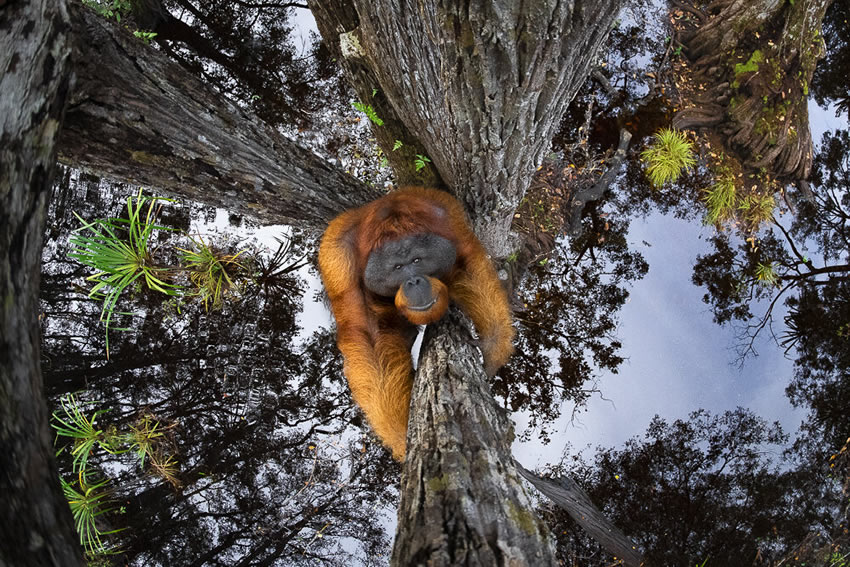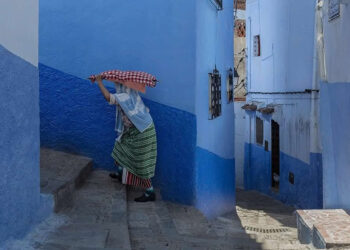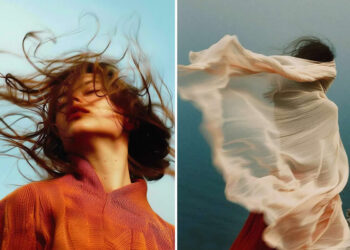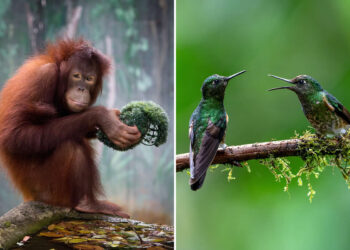Here are the amazing winners of the 2020 World Nature Photography Awards. The entries accepted for 13 categories like Animals in their habitat, Animal portraits, Behaviour – Amphibians and reptiles, Behaviour – Birds, Behaviour – Invertebrates, Behaviour – Mammals, People and nature, Plants and fungi, Urban wildlife, Planet Earth’s landscapes, and environments, Black and white, Nature art and Nature photojournalism.
The title of World Nature Photographer of the Year to Thomas Vijayan for his image ‘The world is going upside down.’ Many congratulations to all the other winners!
You can submit your entries for 2021’s competition here.
You can find more info about World Nature Photography Awards:
Thomas Vijayan, Canada – Animals in their habitat Gold Winner and Grand Prize of World Nature Photographer of the Year
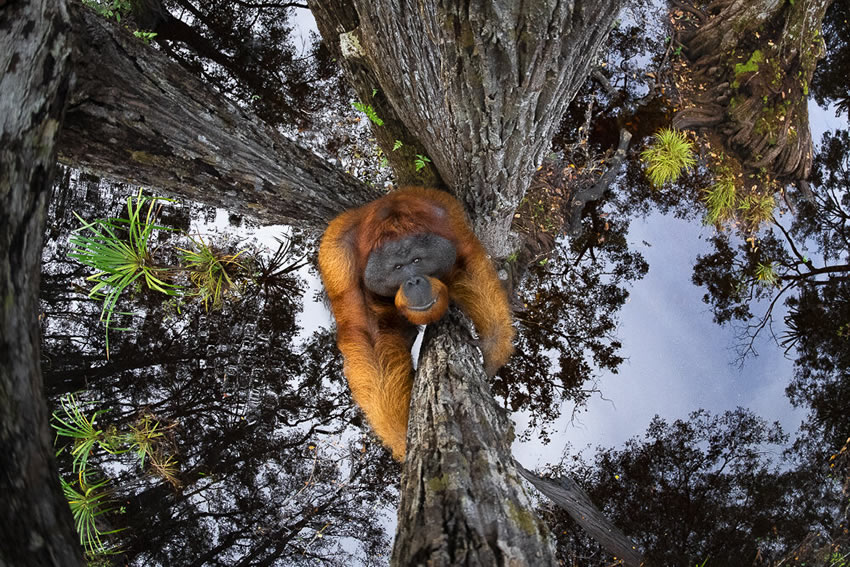
I had this frame in my mind so, to get this shot, I firstly selected a tree that was in the water so that I could get a good reflection of the sky which makes the image look upside down. Then, I climbed up the tree and waited for hours. This is a regular path for the orangutans to cross to another small island, so I felt I was sure to get this frame if I wait patiently. It was a tough task but the end result paid off. Borneo is a photographers’ paradise. I really enjoyed shooting in such an untouched part of the world.
Nick Dale, United Kingdom – Animal Portraits Gold Winner
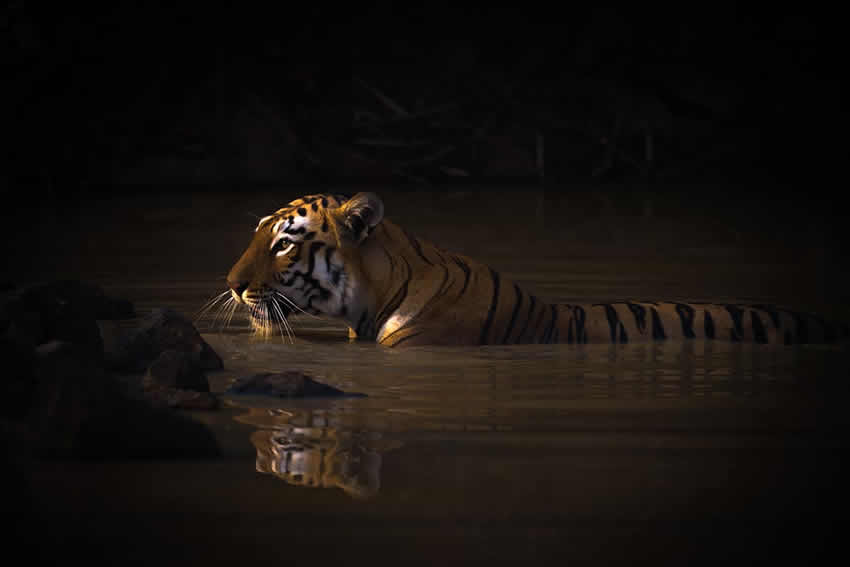
A Bengal tigress with a catchlight in her eye lies up to her neck in the dark shadows of a water hole. Her name is Maya ‘The Enchantress’, and she has orange and black stripes with white patches on her head.
Vittorio Ricci, Italy – Behaviour Amphibians and reptiles Gold Winner
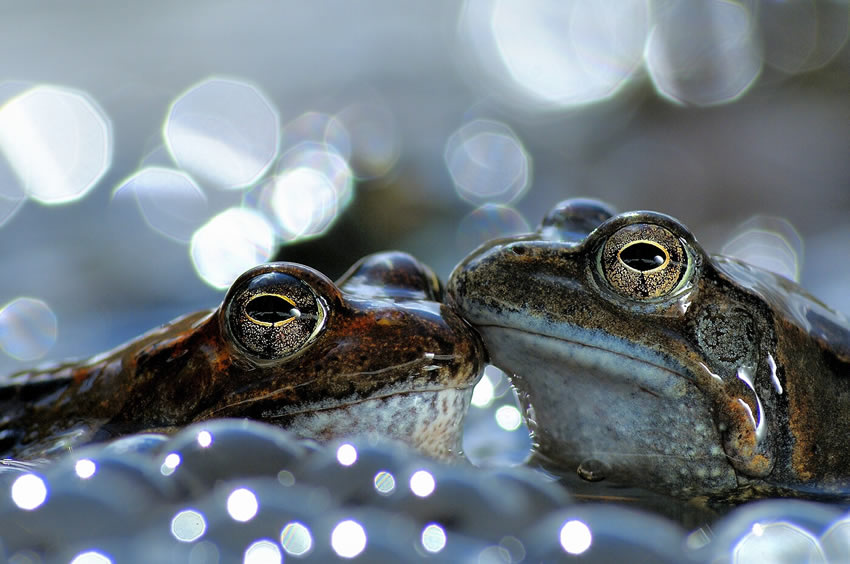
Two European common brown frogs during Spring mating season, Aveto, Italy.
Dale Paul, Canada – Behaviour Birds Gold Winner
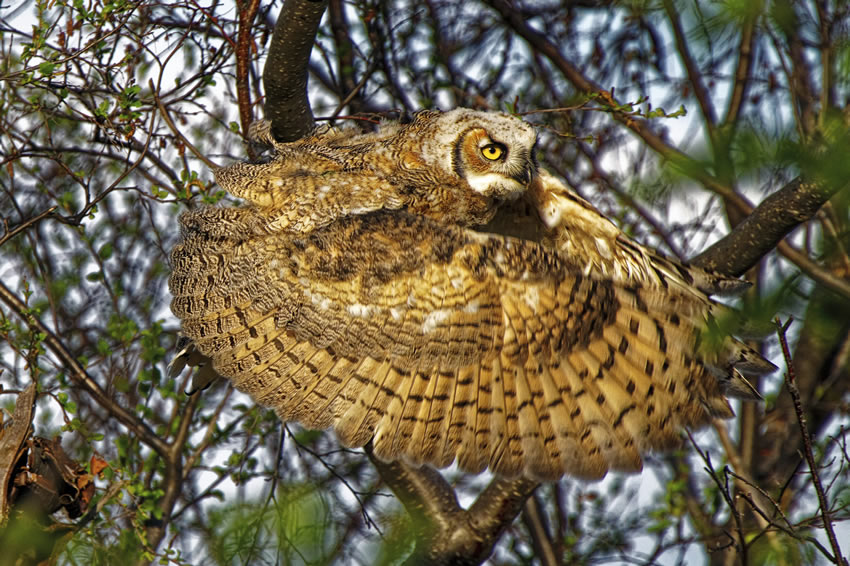
This Great Horned Owl has just jumped from its perch in the trees to begin flight. She has thrust her wings forward to gain momentum. As the wings connect in front of her it appears as though she has formed a perfect flying saucer. The image was taken near High River, Canada.
Dr Tze Siong Tan, Singapore – Behaviour Invertebrates Gold Winner
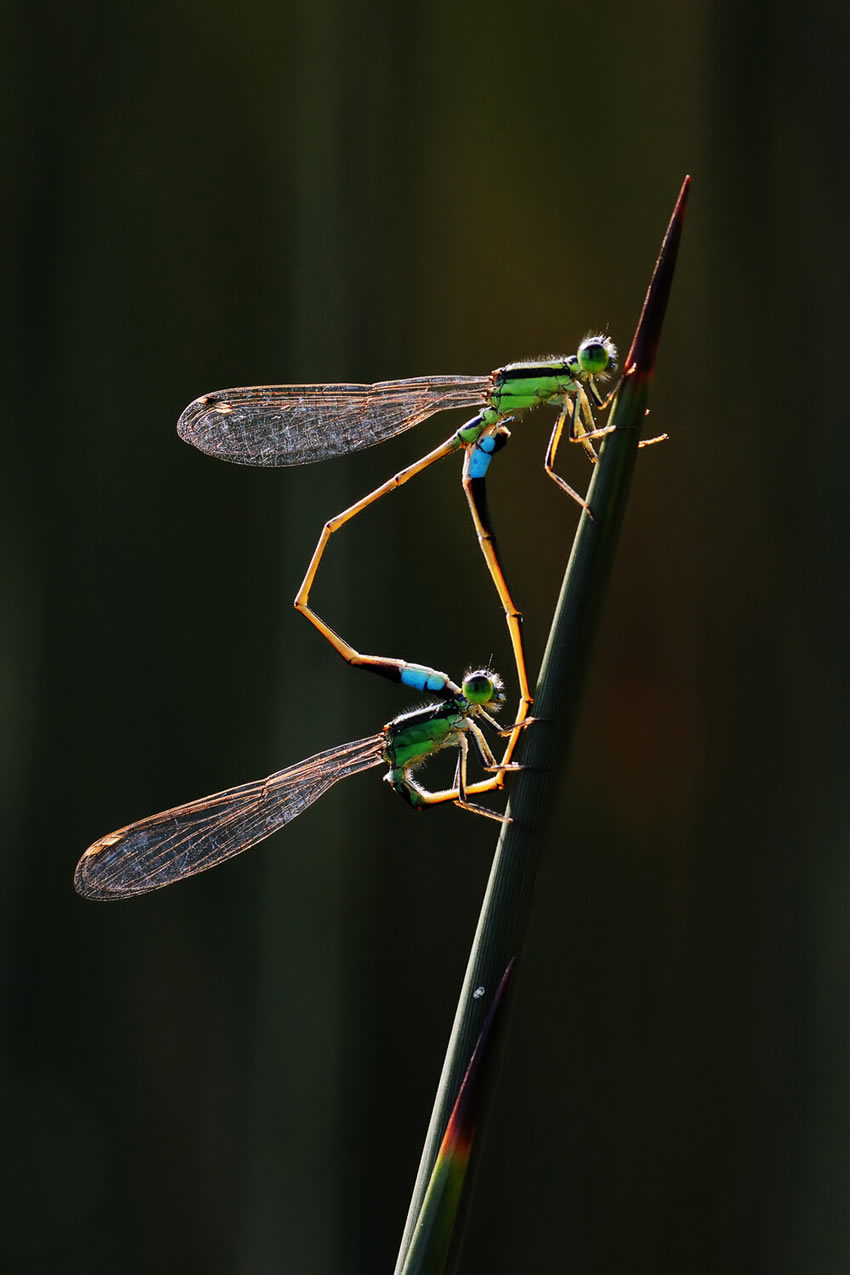
Dragonfly and damselfly sex is a very conspicuous event, easily recognised by the heart-shaped “wheel” formation of mating pairs. I was lucky to encounter several pairs during a morning walk at Gardens by the Bay,Singapore. I approached quietly to avoid scaring the pair away; and positioned my equipment carefully to get both damselflies in the same plane.
Patrick Nowotny, United States – Behaviour Mammals Gold Winner
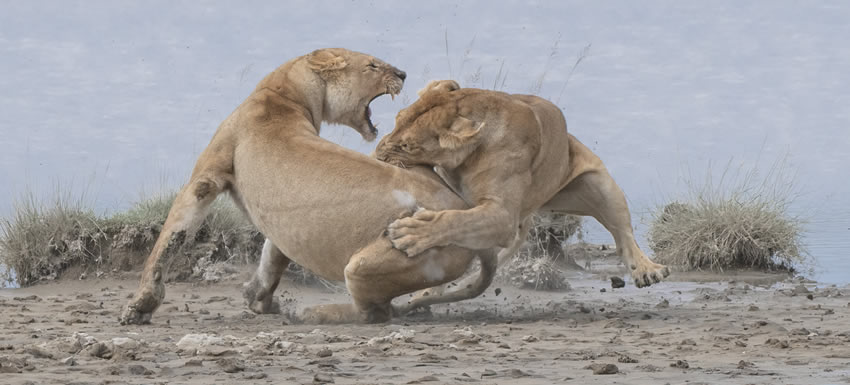
An interloper approaches a watering hole in the Serengeti that was already claimed by a small pride of lions. As the lioness came close, the pride attacked her in order to drive her away.
Christa Funk, United States – People and nature Gold Winner
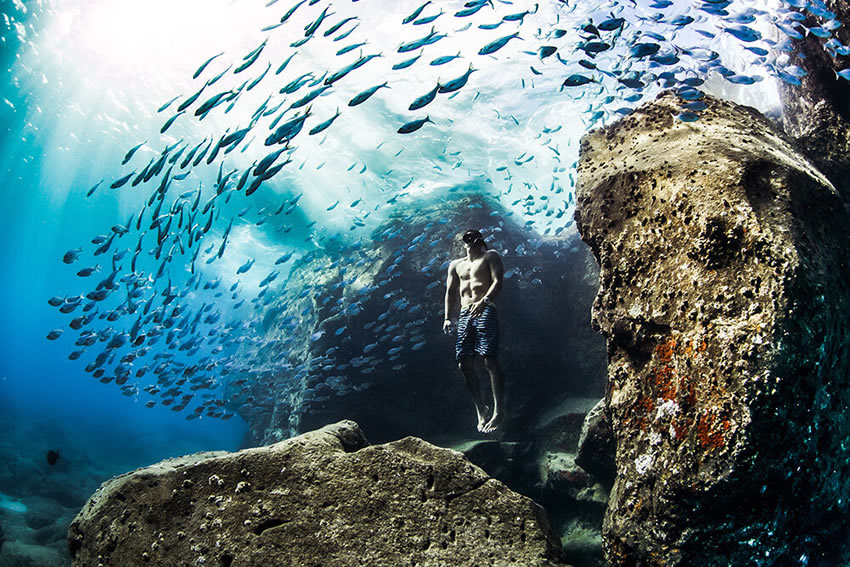
Andre Fajardo and I went to dive early one morning. Sometimes you’ll see a ton of life in this area and other times you won’t. This particular day we came upon a few bait balls and the fish let us swim around them. The photo was taken in the Pacific Ocean.
Doron Talmi, Israel – Plants and Fungi Gold Winner
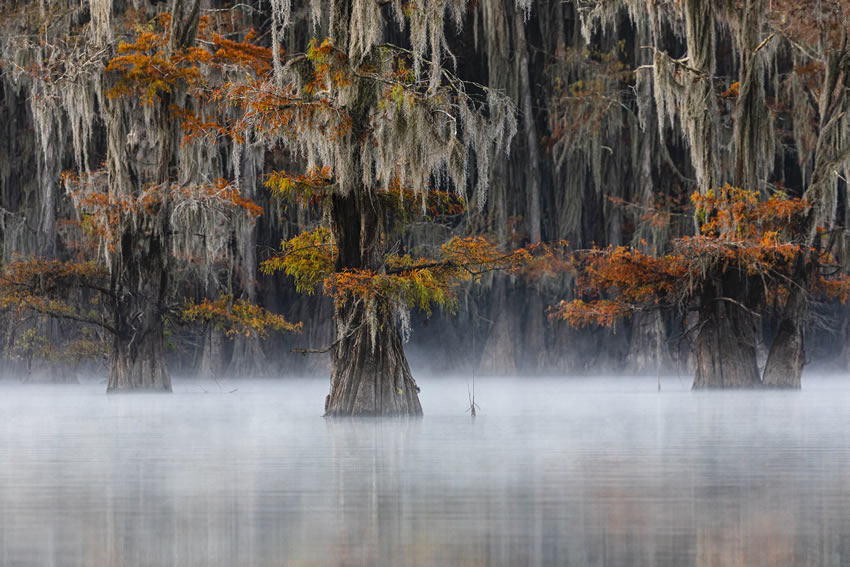
South Eastern USA has numerous swamps, lakes and bayous where thousands of large “bald cypress” trees are growing in the water. The beautiful sights are further enhanced during the November fall foliage by amazing lights and reflections. The image was captured handheld, from a kayak at a misty dawn in a lake in East Texas.
Lawrence Worcester, United States – Urban wildlife Gold Winner

A songbird pulls at construction tape to snag a thread.
Alessandro Gruzza, Italy – Planet Earth’s landscapes and environments Gold Winner
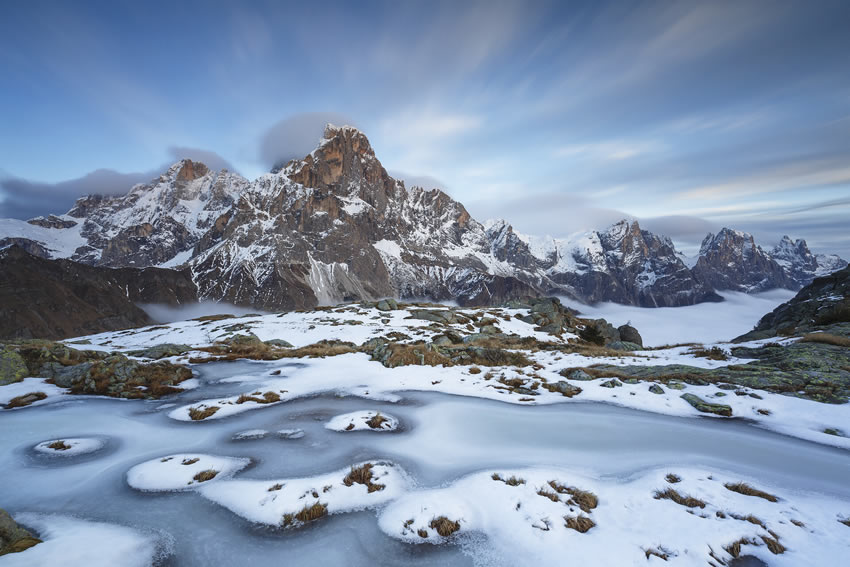
The first cold days of winter have frozen the surface of a pond. The first snowfall has revealed its delicate beauty. A long shutter speed enhances the movement of the clouds in the sky around Mount Cimon de la Pala, in the Pale San Martino Range. Location: Mount Cavallazza, Paneveggio-Pale San Martino Natural Park, Italy.
Harry Skeggs, United Kingdom – Black and white Gold Winner
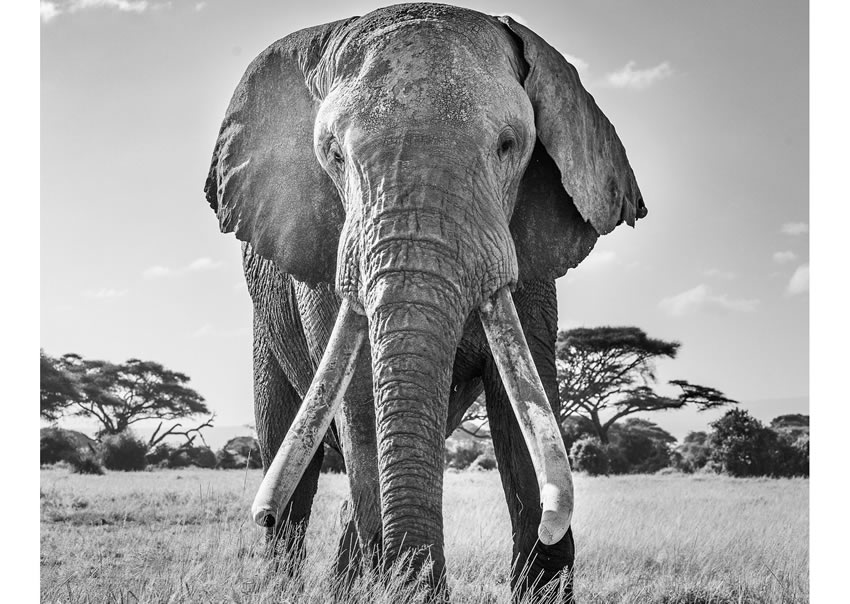
Ulysses, one of the last remaining great tuskers, bears down on top of me, demonstrating his colossal size and tusks.
Dipanjan Pal, India – Nature art Gold Winner
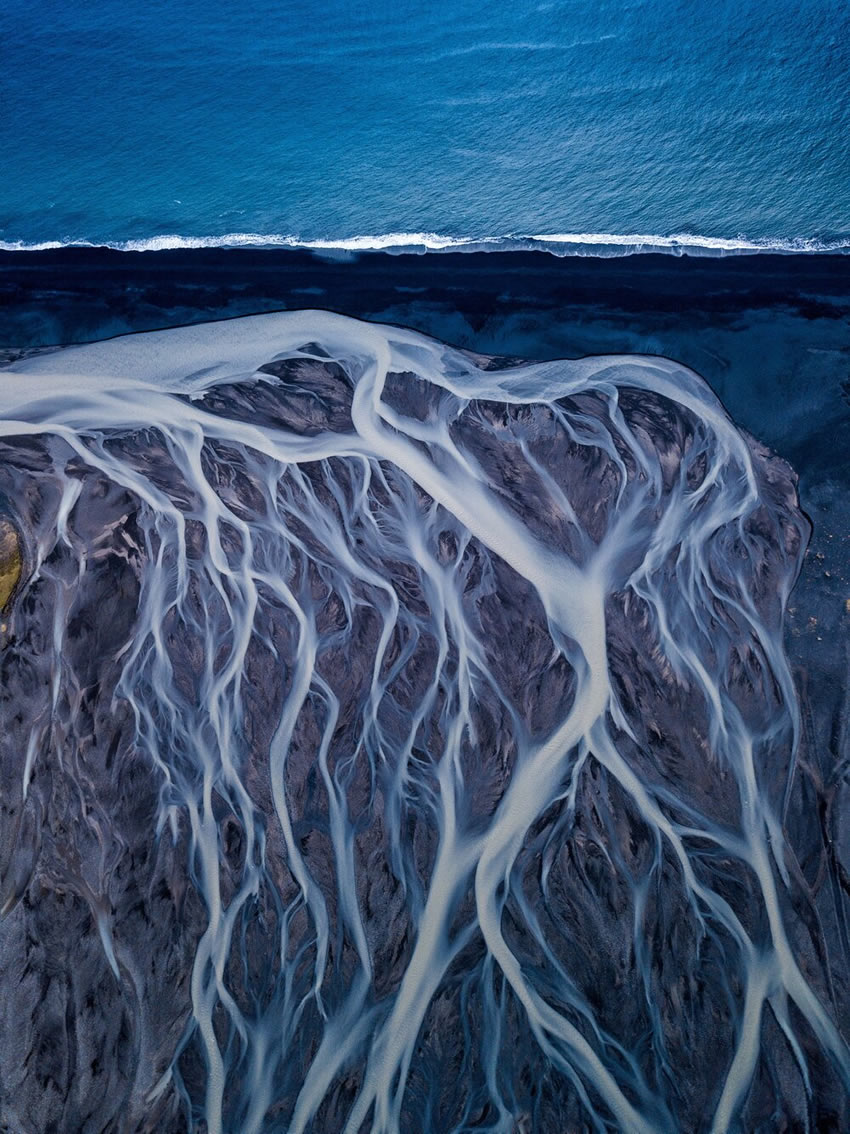
A glacial river flowing through the black sand to the Atlantic.
Gunther de Bruyne, Belgium – Nature photojournalism Gold Winner
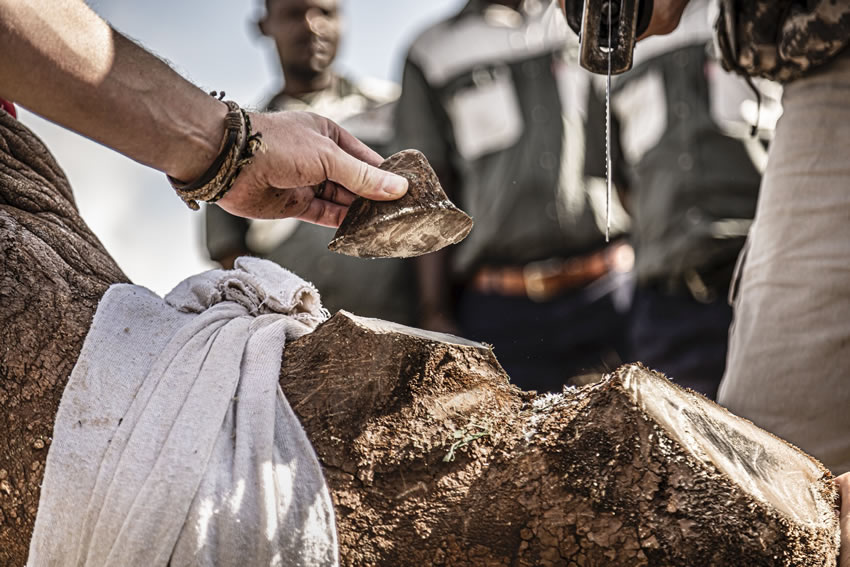
A white Rhino is dehorned to prevent being killed by poachers. It’s a highly effective strategy as well as a conservation measure of last resort. All rhino species are, or have been, on the brink of extinction due to the popularity of their horn in Asia. But to clarify: rhino horn is composed of keratin, the very same substance that forms our fingernails. Nowadays, even in Asia, it’s widely known that rhino horn has no medicinal value or any other beneficial effect. However, the fewer rhinos there are, the higher the price of their horns, which unfortunately has made rhino horn consumption a status symbol.
Please check our previous related articles:
- Winners Of The Street Photography Contest By The Independent Photographer
- Winners of Black and White Minimalist Photography Prize 2021
- The Best Analog/Film Photos Of The International Photography Awards 2020
- The Winners Of 2021 Birth Photography Image Competition
- The Winners Of Tokyo International Foto Awards 2020

